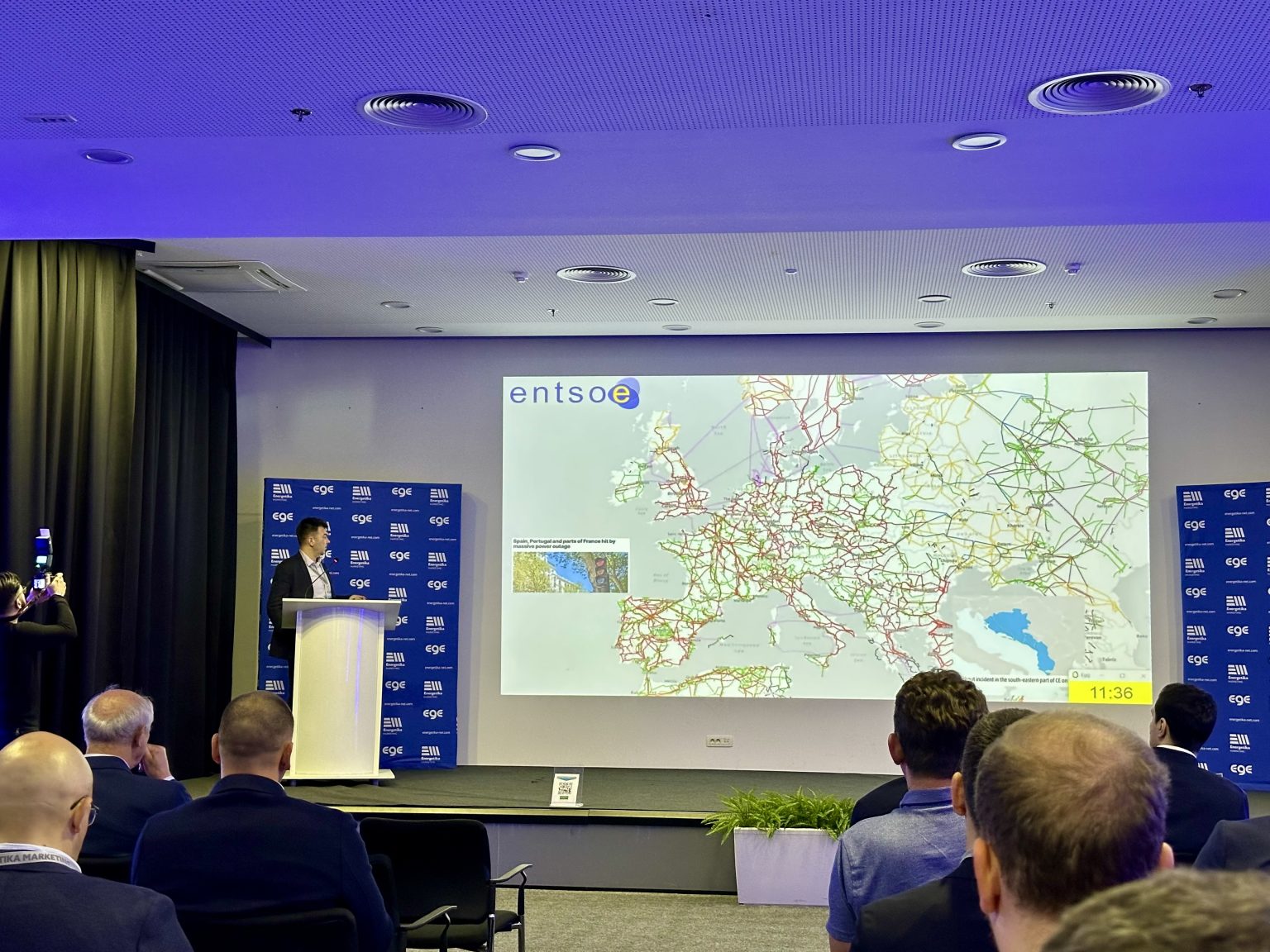The second day of the Renewable South 2025 conference in Mostar continued with a full agenda of expert-led presentations and panel discussions, delving deeper into the technical, regulatory, and social dimensions of Southeast Europe’s energy transition.
Among the key speakers was Antun Andrić of Croatian Transmission System Operator (HOPS), who addressed the evolving role of balancing markets. Andrić outlined how HOPS is actively developing mechanisms to leverage user-side flexibility and aggregators, emphasizing the importance of demand response and distributed assets in stabilizing grid operations as renewable penetration rises.
From a societal perspective, Mersiha Babić of the Association for Green Hydrogen and Renewable Energy Sources (UzH2OIE) delivered a presentation on the critical role of gender inclusion in the energy transition of Bosnia and Herzegovina. Drawing attention to the underrepresentation of women in the energy sector, Babić argued that gender parity is not only a matter of equality but also vital for accelerating innovation and community engagement in renewable deployment.
In a policy-oriented contribution, Edin Turkušić, also representing UzH2OIE, discussed the structural and regulatory hurdles impeding renewable energy project development in Bosnia and Herzegovina. Turkušić highlighted the country’s vast untapped potential, particularly in solar and wind, and proposed that hydrogen integration could serve as a strategic bridge for seasonal balancing and industrial decarbonization.
On the technology front, Mislav Jonjić from CC NewGreenEnergy presented Croatia’s first operational battery storage system, installed in partnership with RCT Power. With a capacity of 200 kWh, the system marks a milestone for the country’s energy resilience and storage readiness—a vital component for managing grid variability in a high-renewables future.
Further technical presentations included insights from Mladen Šicel (Koer d.o.o.), Prof. Ljubomir Majdandžić (Croatian Professional Association for Solar Energy), and Vedad Suljić (REIC), each contributing expertise on solar integration, energy literacy, and regional sustainability education initiatives.
A roundtable addressed pressing legislative and implementation issues surrounding renewable deployment in Bosnia and Herzegovina. Participants—including Faruk Cerić (SERDA), Darko Knezović (City of Mostar), and Majdandžić—discussed the urgent need for regulatory harmonization with EU directives, the decentralization of energy governance, and the multifaceted role renewables play across societal, economic, and environmental dimensions.
The second day’s agenda also previewed forthcoming presentations from academic and industrial leaders such as Alen Ćurin (Ćurin Nautika), Slobodanka Jelena Cvjetković (University of Split), Jasmina Džaferović (JP Elektroprivreda BiH), and representatives from the Universities of Zagreb, Montenegro, and Mostar. Topics are expected to range from sustainable marine transport to regional hydrogen strategy development and capacity building in engineering education.
The EnergyNews.biz editorial team reported from the floor, documenting how the Renewable South conference is positioning itself as a vital regional forum for knowledge-sharing and multi-sector alignment in the global energy transition.
Stay updated on the latest in energy! Follow us on LinkedIn, Facebook, and X for real-time news and insights. Don’t miss out on exclusive interviews and webinars—subscribe to our YouTube channel today! Join our community and be part of the conversation shaping the future of energy.
